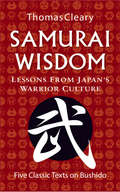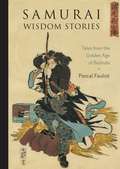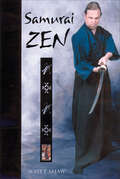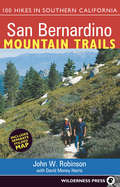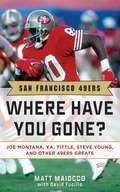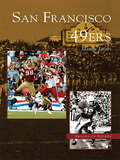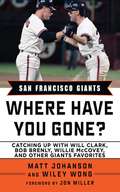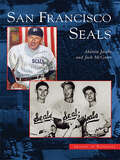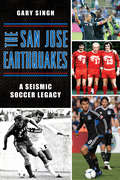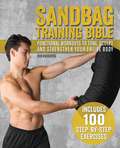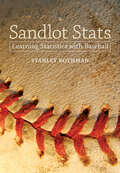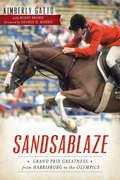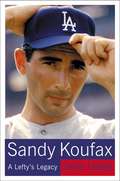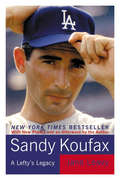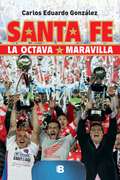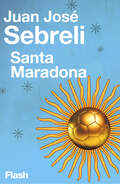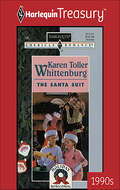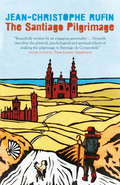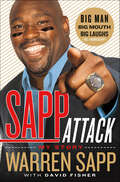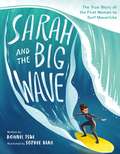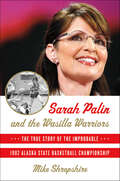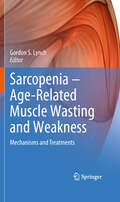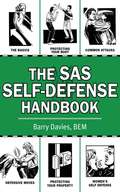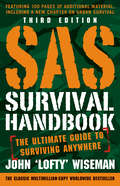- Table View
- List View
Samurai Wisdom
by Thomas ClearyThis book presents new translations of five classic works on Bushido--the way of the Samurai warrior. These treatises, all authored by the scholar Yamaga Soko or one of his disciples, provide the core ideals and philosophy underlying Samurai conduct and way of life. Together they offer an in-depth, practical guide to building character and leading a proper life according to the precepts of Bushido. Yamaga's writings helped inspire the transformation of the Samurai from a feudal warrior class to become accomplished leaders of intellectual, political, and ethical influence.
Samurai Wisdom Stories: Tales from the Golden Age of Bushido
by Pascal Fauliot Sherab Chodzin KohnA collection of samurai stories, drawn from traditional sources, of battles, strategy, conflict, and intrigue--featuring some of the greatest warriors and military leaders of the samurai era. Martial artist and samurai scholar Pascal Fauliot has collected and retold twenty-eight wisdom tales of the samurai era. The tales are set in the golden age of bushido and represent the pinnacle of traditional Japanese culture in which aristocratic tastes, feudal virtues, and martial skills come together with the implacable insights of Zen. Some of the stories--like "The Samurai and the Zen Cat"--are iconic; others are obscure. They feature notable figures from samurai history and legend: miltary leaders and strategists such as Oda Nobunaga, Toyotomi Hideyoshi, and Tokugawa Ieyasu; sword masters; ronin; the warrior monk Benkei, and the ninja-samurai Kakei Juzo, among many others. These samurai stories are pithy and engaging, and include tales of battle, strategy, loyalty conflicts, court intrigues, breakthroughs in a warrior's development, and vengeance achieved or foregone. Each tale reveals a gesture or an outcome that represents greater insight or higher virtue.
Samurai Zen
by Scott ShawAn illustrated guide to uniting physical control with mental calm, by an experienced martial artist and practicing Buddhist.The medieval Samurai of Japan have long been depicted as the consummate warriors of Asia. While the physical training the Samurai underwent was intense and exacting, much of their skill was based on their mental refinement as well as their physical prowess. At the forefront of integrating spiritual understanding into the martial arts, Scott Shaw, the author of Zen O’Clock draws upon his years of study of Buddhist culture to show you how to acquire higher awareness through the art of Zen and Iaido, or the meditative art of the sword. He begins by teaching you how to control and refine your physical senses, while quieting your mind and your emotions as well as your reactions to other people’s energies. Next, with clear instruction and photographs, he guides you through both standing and seated forms of Iaido. He also includes powerful breathing exercises for centering yourself and directing energy. Includes illustrationsPraise for Scott Shaw’s The Warrior is Silent“An easy-to-read introduction to recognizing and developing the spiritual depth of the martial arts.” —Publishers Weekly
San Bernardino Mountain Trails
by John W. Robinson David Money HarrisAfter more than 30 years in print, San Bernardino Mountain Trails remains the bible for Southern California hikers. This updated guide contains new trips as well as old favorites, covering 100 hikes that traverse San Bernardino National Forest, the Santa Rosa Mountains, and San Jacinto Mountains. Includes difficulty ratings, season recommendations, elevation profiles and other essential info, as well as historical photos and descriptions, including early mining operations and pioneer cabins. Includes separate folded map.
San Francisco 49ers: Where Have You Gone? Joe Montana, Y. A. Tittle, Steve Young, and Other 49ers Greats (Where Have You Gone?)
by David Fucillo Matt MaioccoIn San Francisco 49ers: Where Have You Gone?, memories are revisited through profiles of 49 former players, ranging from colorful Visco Grgich, an original member of the organization, to Steve Young, the Hall of Fame quarterback. Other Hall of Famers from the team's rich past include Joe Perry, Hugh McElhenny, Y. A. Tittle, and Bob St. Clair. But what has become of these players since? Many former 49ers players achieved their greatest accomplishments once they left the football field behind. Catch up with all your favorite players!
San Francisco 49ers (Images of Sports)
by Martin JacobsFrankie Albert. Leo Nomellini. Bob St. Clair. Jimmy Johnson. Joe Montana. Jerry Rice. Bill Walsh. Steve Young. Ronnie Lott. Hugh McElhenny. Joe Perry. John Henry Johnson. Roger Craig. The legendary names roll off the tongue of every 49ers fan--never to be forgotten. Since 1946 when they were born into the All-American Football League, the 49ers have been pro football's most exciting and envied franchise. All of the cliffhangers and heartbreakers at grand old Kezar Stadium, and the blustering winds of Candlestick Park . . . where games were decided in the last seconds. The 49ers' unrivaled record includes 5 Super Bowl appearances and 5 victories, 17 NFC Western division titles, and an unbelievable 16 consecutive seasons with at least 10 regular-season wins. Eleven 49ers have been inducted into the NFL Hall of Fame. San Francisco 49ers is a must for every fan's library. Packed with over 200 rare archival photographs and stories and statistics, this collection is a detailed tribute to the 49ers' most memorable seasons, in all their undying glory.
San Francisco Giants: Where Have You Gone? (Where Have You Gone?)
by Jon Miller Matt Johanson Wylie WongThis offering in the continuing "Where Have You Gone?" series focuses on the lost heroes from San Francisco Giants baseball history, especially those whose lives took dramatic turns. From Willie McCovey's struggles to heal his ruined knees to Will Clark's efforts to support children with autism, find out what paths Giants stars of the past fifty-plus years have been pursuing since their days on the diamond. With commentary from Felipe Alou, Dusty Baker, Lon Simmons, and Hank Greenwald, relive the drama of Giants' playing careers. For both the devoted and casual fans of the orange and black, with interests and lifestyles as diverse as those profiled, this revised edition will be sure to offer the inside stories from on and off the field of more than twenty Giants legends.
San Francisco Seals (Images of Baseball)
by Martin Jacobs Jack McguireFor more than half a century, San Francisco Seals baseball was a fertile source of future major league players, with a legacy firmly grounded in the annals of Pacific Coast League baseball. Paul and Lloyd Waner, Ping Bodie, Earl Averill, William Kamm, Ferris Fain, Harry Heilmann, Smead Jolley, "Lefty" O'Doul, Frankie Crosetti, the DiMaggio brothers (Joe, Vince, and Dom), Larry Jansen, and others all launched their careers as Seals. From 1903 to 1957, the Seals were the toast of the town, offering tight pennant races and intense games with the Oakland Oaks--their cross-bay rivals--while playing at Recreation Park and Seals Stadium. In almost 6 decades, the Seals won 11 pennants and 4 Governor's Cups. They survived the earthquake and fire of 1906, the Great Depression, and two world wars. Never forgotten will be Smead Jolley, who in 1928 had what many consider the best all-around season in PCL history by hitting .404 and winning the Triple Crown; Gus Suhr's record-breaking 51 homeruns in 1929; Joe DiMaggio's 61-game hitting streak during his 1933 rookie season; and pitcher Bob Joyce's 31 victories and 35 complete games in 1945.
San Jose Earthquakes, The: A Seismic Soccer Legacy (Sports)
by Gary SinghIn 1974, amid the early days of the North American Soccer League, an unlikely team transformed a quiet suburb into a soccer haven. Combining excellent play with a grass-roots movement of fervent fans, the San Jose Earthquakes shook the Northern California sports landscape. While rival NASL franchises struggled for attendance, the Quakes played sold-out games to the most loyal and passionate fan base in the league, creating an unforgettable and enduring legacy. After the NASL disbanded, the team reemerged over a decade later as a Major League Soccer team and today commands as much fan loyalty and passion as ever. Join author Gary Singh, a San Jose native and lifelong fan, as he recounts the Earthquakes' legendary story in vibrant detail.
Sandbag Training Bible: Functional Workouts To Tone, Sculpt And Strengthen Your Entire Body
by Ben HirshbergA HIGHLY EFFECTIVE STRENGTH-TRAINING PROGRAM USING THE SIMPLEST, MOST AFFORDABLE "UNSTABLE WEIGHTS" An ideal strength-building program for men and women alike, the sandbag training approach unleashes the power of functional training to help you reach your fitness goals. The awkward, unstable nature of sandbags forces your body to use all its muscles, including often-neglected stabilizers for a total-body workout that guarantees you’ll: *Burn fat *Build muscle *Improve health *Sculpt your physique *Boost athleticism With its low cost and simple design, the humble sandbag is an amazing and smart piece of equipment. Sandbag Training Bible shows how to maximize its effectiveness with straightforward exercises, whether you’re using a bulky bag for heavy resistance lifts or a lighter bag for calisthenic circuits or endurance training.
Sandlot Stats: Learning Statistics with Baseball
by Stanley RothmanSandlot Stats uses the national pastime to help students who love baseball learn—and enjoy—statistics.As Derek Jeter strolls toward the plate, the announcer tosses out a smattering of statistics—from hitting streaks to batting averages. But what do the numbers mean? And how can America’s favorite pastime be a model for learning about statistics? Sandlot Stats is an innovative textbook that explains the mathematical underpinnings of baseball so that students can understand the world of statistics and probability. Carefully illustrated and filled with exercises and examples, this book teaches the fundamentals of probability and statistics through the feats of baseball legends such as Hank Aaron, Joe DiMaggio, and Ted Williams—and more recent players such as Barry Bonds, Albert Pujols, and Alex Rodriguez. Exercises require only pen-and-paper or Microsoft Excel to perform the analyses.Sandlot Stats covers all the bases, including• descriptive and inferential statistics• linear regression and correlation• probability• sports betting• probability distribution functions• sampling distributions• hypothesis testing• confidence intervals• chi-square distributionSandlot Stats offers information covered in most introductory statistics books, yet is peppered with interesting facts from the history of baseball to enhance the interest of the student and make learning fun.
Sandsablaze: Grand Prix Greatness from Harrisburg to the Olympics (Sports)
by Kimberly GattoThe Thoroughbred horse Sandsablaze made history in the 1970s, achieving numerous victories with his young owner and rider, William "Buddy" Brown of New York. Despite being deemed awkward in his early years, Sandsablaze began his journey to the top of the sport with a win at the AHSA Medal Finals at Harrisburg, the pinnacle of success in the junior equitation ranks. In an accomplishment that has yet to be duplicated, Sandsablaze--with Brown in the saddle--went on to win at the Grand Prix level and represented the United States at the Olympics. Some of his other key victories occurred at New York's National Horse Show and the Washington International Horse Show, as well as abroad. Nearly thirty-five years after his death, Sandsablaze remains a legend in the sport. Join equestrian author Kimberly Gatto as she tells this remarkable story of partnership and success.
Sandy Koufax: A Lefty's Legacy
by Jane LeavyIn an era when too many heroes have been toppled from too many pedestals, Sandy Koufax stands apart and alone, a legend who declined his own celebrity.
Sandy Koufax
by Jane LeavyIn an era when too many heroes have been toppled from too many pedestals, Sandy Koufax stands apart and alone, a legend who declined his own celebrity. As a pitcher, he was sublime, the ace of baseball lore. As a human being, he aspired to be the one thing his talent and his fame wouldn't allow: a regular guy. A Brooklyn kid, he was the product of the sedate and modest fifties who came to define and dominate baseball in the sixties. In Sandy Koufax: A Lefty's Legacy, former award-winning Washington Post sportswriter Jane Leavy delivers an uncommon baseball book, vividly re-creating the Koufax era, when presidents were believed and pitchers aspired to go the distance.He was only a teenager when Dodgers owner Walter O'Malley proclaimed him "the Great Jewish Hope" of the franchise. But it wasn't until long after the team had abandoned Brooklyn that the man became the myth. Old-fashioned in his willingness to play when he was injured and in his acute sense of responsibility to his team, Koutax answered to an authority higher than manager Walter Alston. When he refused to pitch the opening game of the 1965 World Series because it fell on Yom Kippur, the holiest day of the Jewish calendar, he inadvertently made himself a religious icon and an irrevocably public figure. A year later, he was gone -- done with baseball at age thirty. No other sports hero had retired so young, so well, or so completely.Despite Sandy Koufax's best efforts to protect his privacy, his legend has grown larger ever since. Part biography, part cultural history, Sandy Koufax: A Lefty's Legacy gets as close to that legend as he will allow. Through meticulous reporting and interviews with five hundred of his friends, teammates, and opponents, Leavy penetrates the mythology to discover a man more than worthy of myth.
Santa Fe
by Carlos Eduardo Gonzalez LlañaEl libro que todo hincha del Santa Fe debe tener. Carlos Eduardo González relata cada estrella con minucia y una prosa exquisita. Recuerda a los jugadores y goles que dejaron una huella imborrable en la institución. Repasa los partidos y competiciones internacionales que marcaron la historia del club. Y además realiza once perfiles de ídolos de Santa Fe (Sekularac, Cañón, Gottardi, #el Tren# Valencia, Leider Calimenio, Omar Pérez, entre otros). Un maravilloso libro de consulta para todas las generaciones de uno de los equipos grandes de Colombia, el decano de campeones, que volvió a mostrar su jerarquía con la conquista de la octava estrella. Un amuleto bibliográfico indispensable en la biblioteca de cualquier hincha albirrojo.
Santa Maradona (Flash Ensayo)
by Juan José SebreliUn intenso repaso a la vida pública y privada de uno de los grandes iconos del siglo XX. Maradona ha sido, es y será, una figura que trasciende los límites del deporte para convertirse en un mito y una leyenda para el pueblo. A pesar de sus excesos, la figura del 10 se ha colocado en el altar de las grandes celebridades, para algunos incluso a la altura de Miguel Ángel, Gaudí o Jesucristo. En este apasionante ensayo conoceremos al deportista, al drogodependiente, al amigo de dictadores y narcotraficantes, a la figura pública que se enfrentó a políticos, periodistas e incluso al mismo Papa, al revolucionario de izquierdas que conducía Ferraris, y al rey de la noche que promovía campañas antidroga. Pocas veces una persona ha sido tanto para tantos.
The Santa Season
by Linda Ford[from the back cover] "To get home safe Nick and Marcia need a grand slam of a plan. Ever since Nick and Marcia found out that their grandfather is Santa Claus, their lives have been anything but ho-hum. So, when Nick brings home a strange contraption from the North Pole workshop, he should know it will be trouble. With one accidental pull of a lever, Nick and Marcia hurtle back through time. They find out that things are different in the 1800s, but even though there isn't indoor plumbing, there is still baseball... and Santa. If only there were an easy way home." All of Nick and Marcia's funny and exciting adventures as Santa's grandchildren are in the other four books in this series and you'll find them in the Bookshare library. They are: Santa Claus, Inc., Santa S.O.S., The Santa Solution and The Santa Contest
The Santa Suit (Holiday Homecoming)
by Karen Toller WhittenburgHOLIDAY HOMECOMINGThe man in the red suit...had a lot to answer for, in Kate Harmon's opinion! He'd let her down and now her twins' heads were filled-not with visions of sugarplums but kittens, dogs and a daddy!It'd be a cold midnight clear before that Christmas fancy came true, 'cause Kate didn't date-and Santa didn't exist.So why had the twins hired Gabe Housley to find him? And why did Kate hope Gabe-the man who'd kissed her and dismissed her last Christmas-was Santa's answer to the twins' wish list?
The Santiago Pilgrimage: Walking the Immortal Way
by Jean-Christophe Rufin"Whenever I was asked: 'Why did you go to Santiago?', I had a hard time answering. How could I explain to those who had not done it that the way has the effect - if not the virtue - to make you forget all reasons that led you to become involved in it in the first place."Each year, tens of thousands of backpackers (Christian pilgrims and many others) set out from either their front doorstep or from popular starting points across Europe, to Santiago de Compostela. Most travel by foot, others ride a bicycle, and a few of them travel as did some of their medieval counterparts, on horseback or with a donkey. In addition to those who undertake a religious pilgrimage, the majority are hikers who walk the way for non-religious reasons: travel, sport, or simply the challenge of spending weeks walking in a foreign land. Also, many consider the experience as a spiritual adventure, with a view to removing themselves from the bustle of modern life. Jean-Christophe Rufin followed this "Northern Way" to Santiago de Compostela by foot, on over eight hundred kilometers. Much less crowded than the usual pilgrimage route, this one runs along the Basque and Cantabrian coasts in Spain and through the wild mountains of Asturias and Galicia.Translated from the French by Malcolm Imrie and Martina Dervis
Sapp Attack: My Story
by Warren Sapp David FisherIn his no-holds-barred memoir, Sapp Attack!, Warren Sapp, one of the NFL's most hilarious and candid personalities, reveals a side of football most fans have never before seen.Big Man. Big Talent. Big Star. Big Mouth. Big Heart. Big Personality. Big Smile. Big Headlines. Warren Sapp, one of pro football's most dominating defensive players both on and off the field, has a reputation for being bold, brash, knowledgeable, and outspoken. During his All-American career at the University of Miami, 13 seasons as an NFL star, four years on the NFL Network and one very big season on Dancing with the Stars, Sapp has never held back. Now he brings that same fearless attitude to his memoir, a book that will create controversy and headlines; in other words, pure Warren Sapp.Sapp has won every award possible for a defensive player, but it wasn't just his extraordinarily athletic ability that made him a star; it was also his ability to understand the subtleties of the game. He writes about working his way up from the high school gridiron to one of the top college football programs in the country, to the NFL, and reveals how the system actually works—the behind-the-scenes plays that fans rarely get to see. He'll discuss what it was like to face some of the greatest players in NFL history, including Hall of Famers Steve Young and Jerry Rice, both of whom he put out of the game, and Bret Favre, whom he sacked eleven times during his career. In this revealing, hilarious, and must-read book, Sapp offers readers a look inside the life of one of football's biggest stars and shares his often controversial opinions about the state of pro football today and its future.
Sarah and the Big Wave: The True Story of the First Woman to Surf Mavericks
by Bonnie TsuiThis stunning nonfiction picture book tells the inspiring story of Sarah Gerhardt, one of the first female big-wave surfers. Have you ever seen a big wave? One that’s twenty, thirty, forty, even fifty feet tall? Here’s a better question: Would you ever surf a big wave? Sarah Gerhardt did—and this is her story.Sarah and the Big Wave, a tale of perseverance and indomitable spirit, is about the first woman to ride the waves at Mavericks, one of the biggest and most dangerous surf breaks in the world.
Sarah Palin and the Wasilla Warriors: The True Story of the Improbable 1982 Alaska State Basketball Championship
by Mike ShropshireWith Sarah Palin and the Wasilla Warriors, acclaimed sportswriter Mike Shropshire goes beyond Sarah Palin's media profile to tell the incredible untold story of how she and a team of young women came together to overcome daunting odds as they battled their way to the Alaska state championship.Long before the whole world knew Sarah Palin as "Momma Grizzly," the handful of girls on her high school basketball team called their starting point guard Sarah "Barracuda" for the tenacious defense she played. Hers was the kind of determination that fit in well on a scrappy team from a small town where people were proud to call themselves Valley Trash and happy to take on the big-city schools to prove which team was really the best.As beautiful as Alaska is, it's also unforgiving. It's a place where your first mistake may be your last. When the winter comes and the nights are long and the temperatures plunge, everyone starts looking for an escape. All across Alaska, those gyms—bright and warm—become a sanctuary not only for the players but for their isolated hometowns as well.
Sarcopenia – Age-Related Muscle Wasting and Weakness
by Gordon S. LynchSome of the most serious consequences of aging are its effects on skeletal muscle. 'Sarcopenia', the progressive age-related loss of muscle mass and associated muscle weakness, renders frail elders susceptible to serious injury from sudden falls and fractures and at risk for losing their functional independence. Not surprisingly, sarcopenia is a significant public health problem throughout the developed world. There is an urgent need to better understand the neuromuscular mechanisms underlying age-related muscle wasting and to develop therapeutic strategies that can attenuate, prevent, or ultimately reverse sarcopenia. Significant research and development in academic and research institutions and in pharmaceutical companies is being directed to sarcopenia and to related health issues in order to develop and evaluate novel therapeutics. This book provides the latest information on sarcopenia from leading international researchers studying the cellular and molecular mechanisms underlying age-related changes in skeletal muscle and identifies strategies to combat sarcopenia and related muscle wasting conditions and neuromuscular disorders. The book provides a vital resource for researchers and practitioners alike, with information relevant to gerontologists, geriatricians, sports medicine physicians, physiologists, neuroscientists, cell biologists, endocrinologists, physical therapists, allied health and musculoskeletal practitioners, strength and conditioning specialists, athletic trainers, and students of the medical and biomedical sciences.
The SAS Self-Defense Handbook
by Barry DaviesBarry Davies is one of the most widely respected experts on the techniques and training of the elite British Special Air Service (SAS). In The SAS Self-Defense Handbook, Davies reveals the self-defense techniques of the SAS. The handbook is fully illustrated with nearly 130 photographs and illustrations that explain how to properly use your body and use everyday objects such as desktop items and cigarette lighters to protect yourself. Learn how to avoid physical attacks from humans and animals, and handle those confrontations that cannot be avoided.
SAS Survival Handbook, Third Edition
by John 'Lofty' WisemanThe ultimate guide to surviving anywhereUpdated to reflect the latest in survival knowledge and technology, and covering new topics such as urban survival and terrorism, the internationally bestselling SAS Survival Handbook is the definitive resource for all campers, hikers, and outdoor adventurers. From basic campcraft and navigation to fear management and strategies for coping with any type of disaster, this complete course includes:Being prepared: Understanding basic survival skills, like reading the weather, and preparation essentials, such as a pocket survival kit.Making camp: Finding the best location, constructing the appropriate shelter, organizing camp, staying warm, and creating tools.Food: What to eat, what to avoid, where to find it, and how to prepare it.First aid: A comprehensive course in emergency/wilderness medicine, including how to maximize survival in any climate or when injured.Disaster survival: How to react in the face of natural disasters and hostile situations--and how to survive if all services and supplies are cut off.Self-defense: Arming yourself with basic hand-to-hand combat techniques.Security: Protecting your family and property from intrusion, break-ins, and theft.Climate & terrain: Overcoming any location, from the tropics to the poles, from the desert to the mountains and sea.
